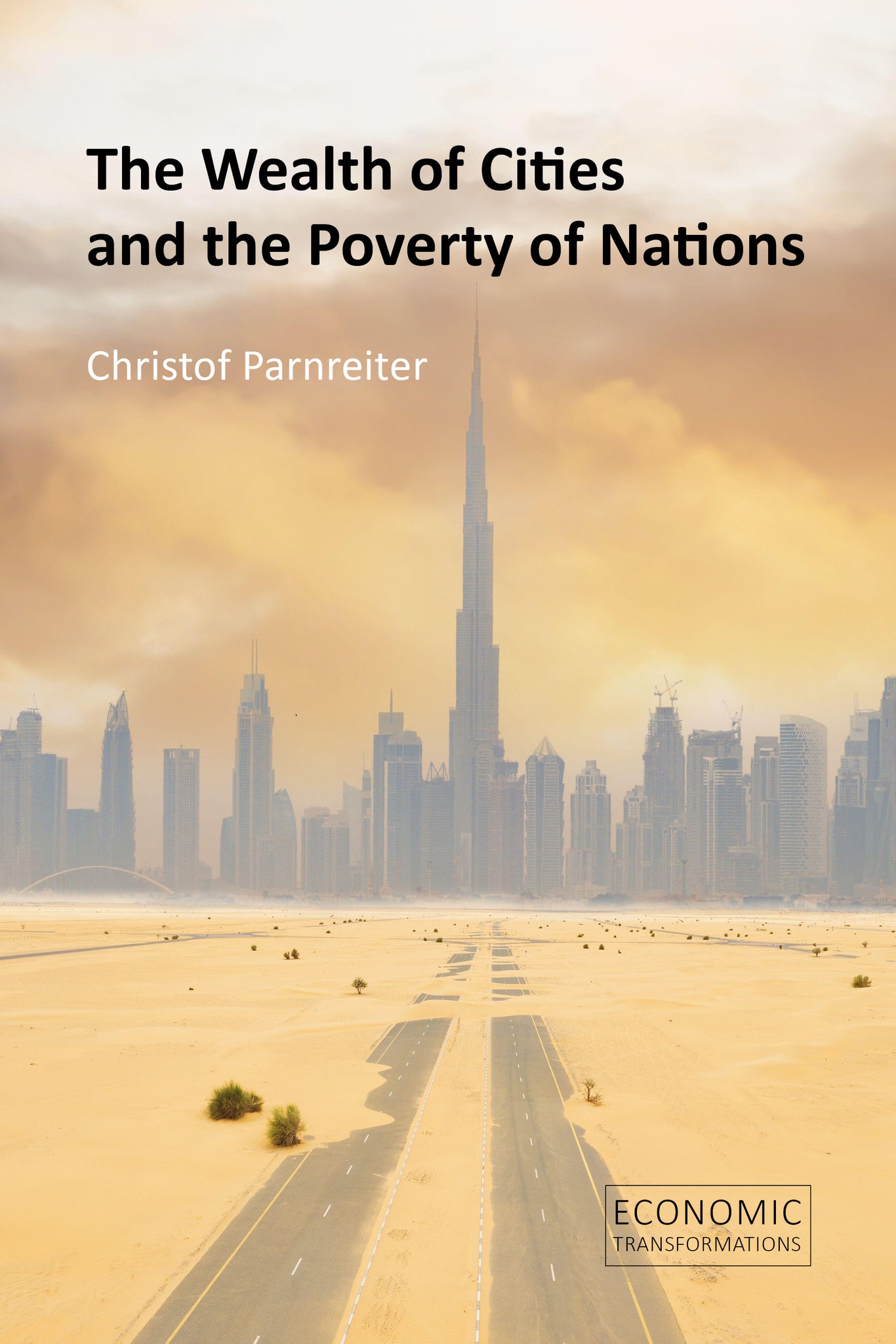We're sorry. An error has occurred
Please cancel or retry.
The Wealth of Cities and the Poverty of Nations

Some error occured while loading the Quick View. Please close the Quick View and try reloading the page.
Couldn't load pickup availability
- Format:
-
09 May 2024

Cities are seen as essentially “good”: innovative, pro-growth, poverty-reducing. In a challenging corrective to this common portrayal, Christof Parnreiter argues that the same urban properties which make cities so extraordinarily proficient at producing the “good” innovations – agglomeration economies, network externalities and a massive built environment – also provides fertile ground for the development of the “bad” ones, on which urban elites have syphoned off wealth from other localities and regions.
The book scrutinizes the interconnections between wealth creation and poverty generation by putting cities centre stage as a fundamental explanatory category for understanding how the wealth of nations is produced as well as for grasping how the poverty of nations is created. It seeks to correct the developmentalist enthusiasm, commonplace in urban and regional studies, for cities’ efficiency, which has displaced interest in cities’ role in uneven development.

SOCIAL SCIENCE / Regional Studies, Regional / urban economics, BUSINESS & ECONOMICS / Urban & Regional, SOCIAL SCIENCE / Human Geography, SOCIAL SCIENCE / Poverty & Homelessness, Poverty and precarity, Economic geography

The main objective of this book is to rebalance our understanding of cities… Parnreiter offers a rich, varied and cogent discussion that touches on the transition from feudalism to capitalism, the ideas of Adam Smith and Karl Marx, the world-systems thinking of Fernand Braudel, André Gunder Frank and Immanuel Wallerstein, and much more… The book is well-written and well-structured, and can be used as both a concise compendium of critical concepts and a standalone contribution to the literature… it deserves to be widely read.
1. Introduction
2. Uneven development
3. The genius of cities
4. The Janus-faced genius of cities
5. Towards a citified research agenda on uneven development
6. Concluding remarks



